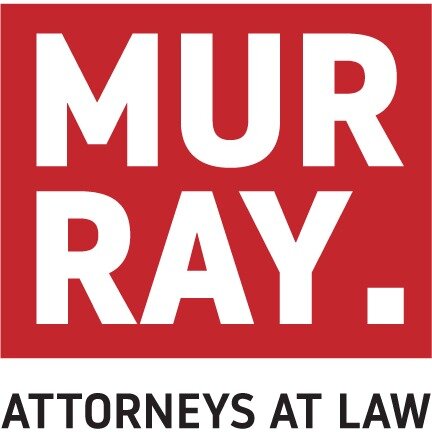Best Transportation Lawyers in Curaçao
Share your needs with us, get contacted by law firms.
Free. Takes 2 min.
Or refine your search by selecting a city:
List of the best lawyers in Curaçao
About Transportation Law in Curaçao
Curaçao, a Dutch Caribbean island, has a well-established transportation system that includes roads, public transport, and ports. Transportation laws in Curaçao govern various aspects such as road safety, vehicle registration, and public transport regulations.
Why You May Need a Lawyer
You may need a lawyer in Curaçao for transportation-related legal issues such as traffic accidents, disputes with insurance companies, licensing and registration problems, and public transport regulations. A lawyer can provide legal advice, represent you in court, and help ensure your rights are protected.
Local Laws Overview
In Curaçao, transportation laws are governed by the Minister of Traffic, Transport and Urban Planning. Some key aspects of local transportation laws include speed limits, vehicle inspection requirements, licensing and registration procedures, and public transport regulations.
Frequently Asked Questions
1. What should I do in case of a traffic accident in Curaçao?
In case of a traffic accident in Curaçao, you should immediately call the police and seek medical help if needed. Exchange contact and insurance information with the other party, take photos of the accident scene, and report the accident to your insurance company.
2. Are there specific speed limits in Curaçao?
Yes, Curaçao has specific speed limits that vary depending on the type of road. For example, in urban areas, the speed limit is typically 50 km/h, while on highways it can be up to 80-100 km/h.
3. How can I renew my driver's license in Curaçao?
To renew your driver's license in Curaçao, you will need to visit the Department of Road Transport and Traffic. Bring your current license, identification documents, and any required fees. The renewal process typically involves a written test and a vision test.
4. What are the regulations for public transport in Curaçao?
Public transport in Curaçao is regulated by the government. Operators need to have a valid license, maintain their vehicles in good condition, and follow specific routes and schedules. Passengers are entitled to a safe and reliable service.
5. Can I dispute a traffic ticket in Curaçao?
Yes, you can dispute a traffic ticket in Curaçao by following the instructions on the ticket or seeking legal advice. You may need to attend a court hearing to present your case and provide evidence to support your argument.
6. What are the penalties for driving under the influence in Curaçao?
Driving under the influence of alcohol or drugs is a serious offense in Curaçao. Penalties may include fines, license suspension, and even imprisonment. It is important to never drink and drive to avoid legal consequences.
7. How can I report a road safety concern in Curaçao?
If you have a road safety concern in Curaçao, you can report it to the Department of Road Transport and Traffic or the police. Provide details of the issue, such as the location and nature of the concern, to help authorities address it effectively.
8. Can I appeal a decision made by the Department of Road Transport and Traffic?
Yes, you can appeal a decision made by the Department of Road Transport and Traffic by following the appeals process outlined by the department. It is advisable to seek legal advice to understand your rights and options for appealing a decision.
9. What are the requirements for registering a vehicle in Curaçao?
To register a vehicle in Curaçao, you will need to provide proof of ownership, a valid driver's license, proof of insurance, and payment of registration fees. The vehicle will also need to pass an inspection to ensure it meets safety standards.
10. How can I find a reliable transportation lawyer in Curaçao?
To find a reliable transportation lawyer in Curaçao, you can ask for recommendations from friends or family, search online for law firms specializing in transportation law, or contact the Curaçao Bar Association for referrals to qualified lawyers.
Additional Resources
For more information on transportation laws and regulations in Curaçao, you can visit the Department of Road Transport and Traffic website or the Ministry of Traffic, Transport and Urban Planning. These governmental bodies can provide guidance and resources related to transportation legal issues.
Next Steps
If you require legal assistance with transportation-related issues in Curaçao, it is recommended to contact a qualified transportation lawyer who can provide personalized advice and representation. Be sure to gather all relevant documents and information before meeting with a lawyer to discuss your case in detail.
Lawzana helps you find the best lawyers and law firms in Curaçao through a curated and pre-screened list of qualified legal professionals. Our platform offers rankings and detailed profiles of attorneys and law firms, allowing you to compare based on practice areas, including Transportation, experience, and client feedback.
Each profile includes a description of the firm's areas of practice, client reviews, team members and partners, year of establishment, spoken languages, office locations, contact information, social media presence, and any published articles or resources. Most firms on our platform speak English and are experienced in both local and international legal matters.
Get a quote from top-rated law firms in Curaçao — quickly, securely, and without unnecessary hassle.
Disclaimer:
The information provided on this page is for general informational purposes only and does not constitute legal advice. While we strive to ensure the accuracy and relevance of the content, legal information may change over time, and interpretations of the law can vary. You should always consult with a qualified legal professional for advice specific to your situation.
We disclaim all liability for actions taken or not taken based on the content of this page. If you believe any information is incorrect or outdated, please contact us, and we will review and update it where appropriate.
Browse transportation law firms by city in Curaçao
Refine your search by selecting a city.










